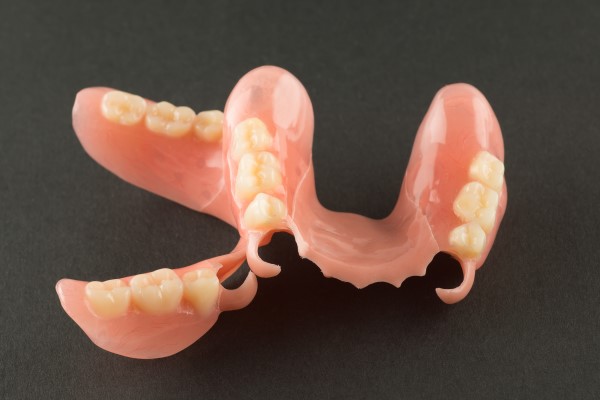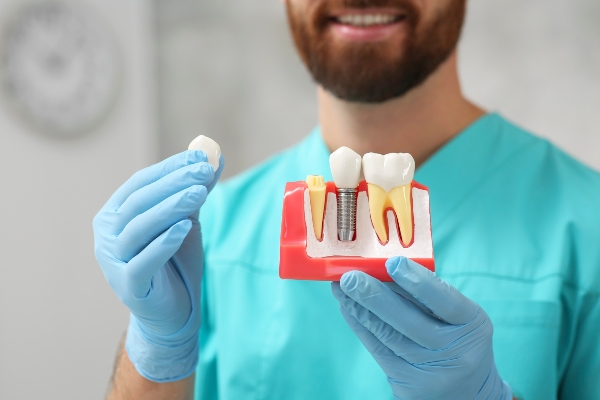How Dental Sealants From a Family Dentist Can Prevent Cavities

Preventing cavities through oral hygiene regimen works, but additional protection from dental sealants is sometimes necessary. Cleaning the back teeth (molars) is sometimes difficult, and this could usher in problems like decay or cavities that often require costly dental treatments to correct. The safety provided by dental sealants helps to make cleaning the molars easy and keep them free of cavities.
Importance of dental sealants
The molars and premolars are typically recipients of dental sealants because they are the main teeth used for chewing, grinding and crushing foods. Each molar has nooks and crannies on the chewing surface, which makes proper cleaning hard, especially for children. Bacteria that cause cavities can also lurk in the crevices and feed on the debris, producing harmful acids that cause deterioration of the protective layer of the teeth, known as the enamel.
Brushing and flossing can remove most of the food particles on the teeth, but it is sometimes not thorough. The plaque caused by bacteria and saliva causes tooth decay and, ultimately, a cavity. Dental sealant is a plastic coating applied to the chewing surfaces of the molars and premolars. The sealant fills the grooves of the teeth to prevent bacteria and food debris from lurking there. Sealants do not replace brushing and flossing; instead, it supplements oral hygiene routines.
When dental sealants are applied to a tooth, the tooth is “sealed” and will not trap foods. This makes cleaning the tooth easier. Dental sealants penetrate the tooth enamel upon application. This ensures that the tooth bonds firmly with the sealant. With the tooth’s grooves filled and the sealant hardened, a thin, plastic barrier is formed.
When to apply sealants
Normally, children should get dental sealants as soon as the chewing surface of the molar or premolars has fully formed above the gum line. If the molars are sealed immediately, they emerge on the gums, the chances of decay or cavities significantly reduces. Generally, the wisdom teeth do not form until one reaches 17 years. Since the wisdom teeth are removed eventually, there is usually no need to apply the sealants.
The application of dental sealants
The process of applying dental sealants is fast and causes no pain. Before the family dentist applies the sealant, they will properly clean and dry the teeth that need sealing. An acidic gel is rubbed over the teeth to roughen the surfaces and ensure the sealant material adheres firmly to the tooth. After a few seconds, the family dentist will rinse off the gel, dry the tooth properly and apply the sealant over the chewing surfaces. Afterward, a unique curing light is used to harden the sealant over the tooth surface.
Once the process is complete, the patient can leave the dental office. They are often reminded that the dental sealant is not an excuse to slack on oral hygiene routines. Regular dental appointments are important, as well.
Final note
Dental sealants make the teeth less vulnerable to tooth decay or cavities. To learn more about the process, book an appointment with the dentist for a consultation.
Request an appointment here: https://www.providencefamilydentistry.com or call Providence Family Dentistry at (678) 496-7021 for an appointment in our Mableton office.
Check out what others are saying about our services on Yelp: Read our Yelp reviews.
Recent Posts
There are many benefits to removable partial dentures instead of alternative treatment solutions (i.e., implant-supported bridges). Understanding the advantages of partial dentures can help you make the most informed choice possible about the best way to replace your missing teeth. Removable partial dentures are a form of teeth replacement for a section of missing teeth. They…
A tooth replacement procedure is necessary when someone has lost their natural teeth. Teeth play an important role in maintaining good health and oral functions like chewing and speaking, so tooth loss can be quite devastating. Fortunately, there are many tooth replacement options available today to replace missing teeth.Options available for those who have missing…
A dental inlay is often necessary for teeth that are in bad shape, whether it be due to cavities or accidental injuries such as cracks or chips. However, among dental restorations, inlays are not the most common type. Most people are familiar with dental fillings or crowns, but general dentists also recommend dental inlays for…
Are you thinking about getting dental sealants? While this preventive dental treatment is commonly used on children's teeth to prevent the formation of cavities, it can also protect adults' teeth. According to WebMD, dental sealant is a thin plastic coating painted on the chewing surfaces of teeth, usually the back teeth, to prevent tooth decay.Understanding…


